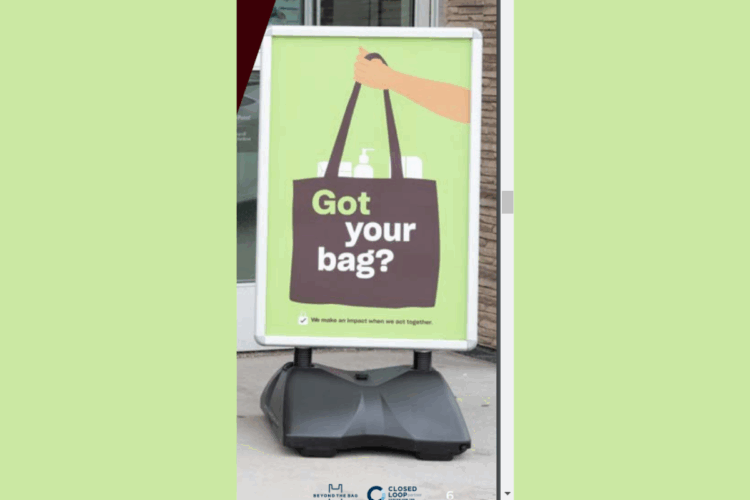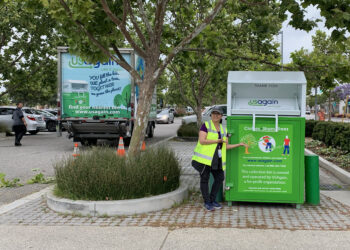When retail stores encouraged consumers to bring their own bags or opt out of using one, nearly 5% fewer single-use plastic bags were used, according to a report from the industry-led Consortium to Reinvent the Retail Bag.
Part of the Consortium’s “Beyond the Bag” program, the three-month pilot project tracked 160 retailers and more than 375 stores in Denver and Tucson in 2023. The 5% reduction equals up to 9.5 million fewer bags across the two metro areas, “demonstrating the impact of supporting customers at different stages of their journey to reuse a bag or go without one,” the report said.
Retailer efforts included signs in the parking lot and inside the store, encouraging customers to bring a bag or go without one; verbal prompts at checkout, such as asking, “Do you need a bag?” rather than automatically providing one; and a marketing campaign.
During the pilot, the Consortium conducted more than 38,000 checkout observations, nearly 5,000 customer surveys, more than 200 employee surveys and 30 in-depth customer interviews.
In addition, the report found that the project’s effects stretched beyond the physical store. For example, one customer said, “I’ve been hearing more commercials on my Spotify about using your own bags and how the environment will thank you for it.”
The report acknowledged that of the two cities, Denver experienced greater and faster behavior change, because consumers “are further along on their zero waste journey.”
In 2021, Denver implemented a 10-cent fee on single-use fees, and the pilot project built on this, specifically targeting customers who were still using single-use bags. In contrast, Tucson has free and readily available plastic bags, and many stores automatically provide bags at checkout.
The report findings “serve as a blueprint for the Consortium’s upcoming work to scale bag waste reduction strategies.”
Kate Daly, managing director and head of the Center for the Circular Economy at Closed Loop Partners, said, “As we expand from ideation to implementation of solutions that support customers and reduce single-use bag waste, we aim to drive a cultural change toward reduction and reuse.”
In addition to releasing the report, the Consortium – an industry collaboration managed by Closed Loop Partners’ Center for the Circular Economy – announced a renewed collaboration with leading retailers to eliminate single-use bags.
Retailers Target, CVS Health, Kroger, Dollar Tree, Family Dollar, Meijer and Walmart renewed their participation in the Consortium.
California recently expanded its ban on single-use plastic bags, and several states have more limited bans. Proponents say such measures will help curb plastics pollution, while opponents say bans are detrimental to a growing recycling industry and rely on resource-intensive materials such as paper.
A version of this story appeared in Resource Recycling on Oct. 29.




























